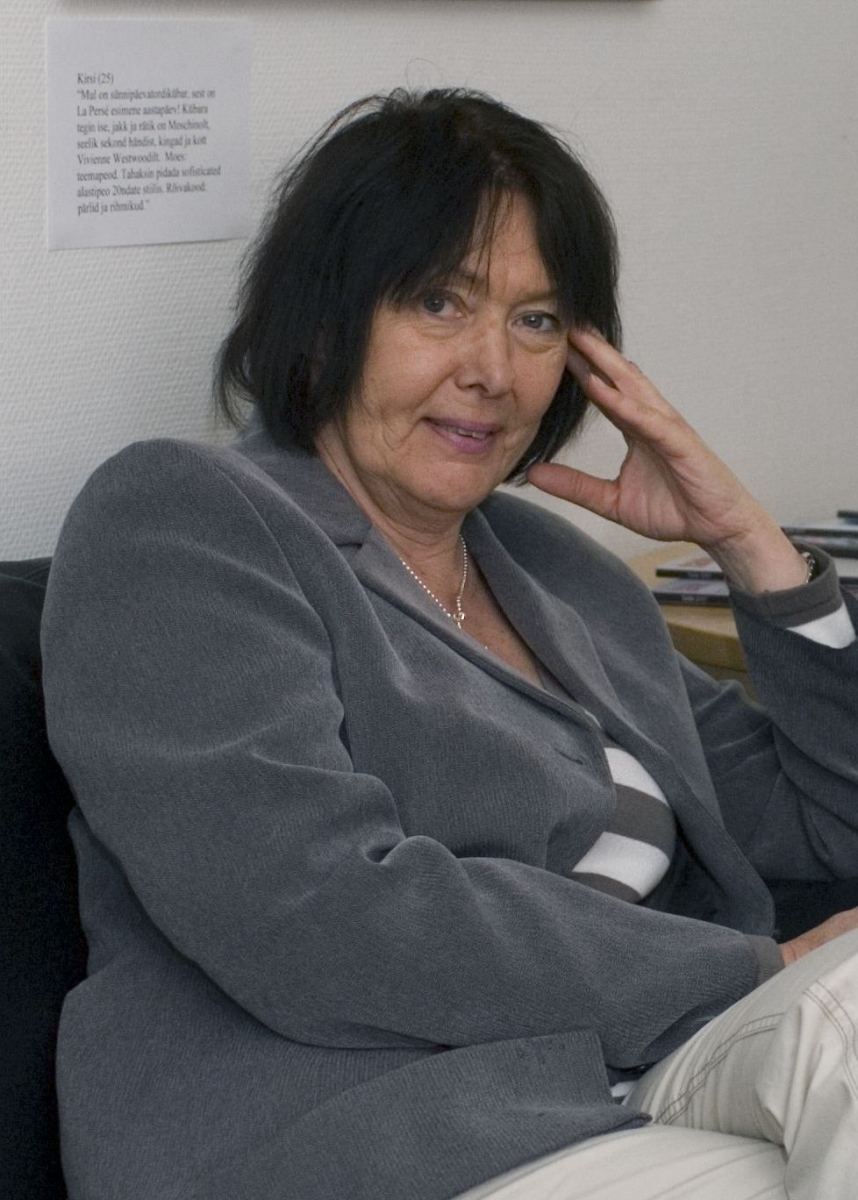
Maimu Berg
Poems
Novels
Short stories
Non-fiction
About Maimu Berg
Maimu Berg (b. 27. VIII 1945), prosaist, journalist, translator and critic, was born in Tallinn to a family of intellectuals. She completed high school in 1963 and went on to study Estonian philology at the University of Tartu, graduating in 1968. Later, from 1982–1986, she returned to the university to complete her degree in journalism. From 1969–1974, Berg worked as a scientific secretary at the Tartu University Library. She then became head editor of Siluett, a fashion magazine, for which she worked from 1974–1990. From 1990–1991, she was an editor for the academic journal Keel ja kirjandus, and since 1991, she has worked as the cultural secretary in Tallinn at the Finnish Institute. She was a founding member of the literary group Wellesto in 1988, and in 1990 was inducted into the Estonian Writers’ Union. Berg has also been active in politics, especially in the last fifteen years. From 2002–2006, she was a member of the Eestimaa Rahvaliit until she switched to the Social Democratic Party in 2006.
Berg debuted with a short story in the journal Noorus in 1969 under the pen-name Leen Kaiste; however, she did not gain national attention until the publication of her combined novels Kirjutajad. Seisab üksi mäe peal (‘Writers. Standing Alone on a Hill’) in 1987, which explored cultural and historical problems of national identity. She published her first collection of short stroies and tales On läinud (‘Bygones’) in 1991, which was followed by a second collection of both short texts and longer stories called Mina, moeajakirjanik (‘Me, a Fashion Journalist’, 1996), the latter of which was undoubtedly influenced by her work as a fashion editor during Soviet Occupation.
Much of Berg’s work explores the fears and desires of women, especially within a psychoanalyical framework. Others have described her style as sarcastically humorous, ironic, and grotesque. Her stories often explore complex relationships, especially as a means of analyzing one’s own ethnic identity, through love stories or the idea of escaping stagnation. Her novels Ma armastasin venelast (‘I Loved a Russian’, 1994), an Estonian version of Lolita, and Ära (‘Away’, 1999), which won the A.H. Tammsaare Literary Award in 2000, are both set in the last years of the Soviet Union. Her more recent work includes the short story collection Unustatud inimesed (‘Forgotten People’, 2007), the plays Vene rulett. Euroopasse! Euroopasse! (‘Russian Roulette. To Europe! To Europe!’, 2008), and the memoir Moemaja (‘The Fashion House’, 2012).
In addition to writing, Berg is also a literary critic (debuted in 1983) and a translator. Sirje Olesk described Berg as having a feuilleton-like and subjective critical style. She has published literary historical accounts of other writers, including Jaan Oks and Oskar Luts. Berg’s translations of Finnish drama won her the Aleksander Kurtna Translation Award in 2008, and she is also an honorary member of the Finnish Writers’ Union. Her own work as been translated into several languages.
M.M.
Books in Estonian
Novels
Kirjutajad; Seisab üksi mäe peal. Tallinn: Eesti Raamat, 1987, 316 lk.
Ma armastasin venelast; Nemad. Tallinn: Kupar, 1994, 191 lk. [2. trükk: Tallinn: Tänapäev, 2004, 278 lk.]
Kristjan Jaak Peterson, Laulud ja päevaraamat; Maimu Berg, Seisab üksi mäe peal. Tallinn: Huma, 1998, 278 lk.
Ära. Tallinn: Tuum, 1999, 260 lk.
Short stories
On läinud: lugusid ja kunstmuinasjutte. Tallinn: Eesti Raamat, 1991, 179 lk.
Mina, moeajakirjanik. Tallinn: Huma, 1996, 243 lk.
Unustatud inimesed. Tallinn: Tuum, 2007, 228 lk.
Hitler Mustjalas. Tallinn: Tuum, 2016, 221 lk.
Plays
Vene rulett; Euroopasse! Euroopasse!: kaks näidendit. Tallinn: Kultuurileht (Loomingu Raamatukogu), 2008, 127 lk. [E-raamat: Tallinn: Kultuurileht (Loomingu Raamatukogu), 2008.]
Non-fiction
Tants lahkunud isaga: vaateid Eesti ellu. Tallinn: Kirilille Kirjastus, 2003, 119 lk. [Artiklid.]
Moemaja. Tartu: Petrone Print, 2012, 198 lk. [2. trükk: Tartu: Petrone Print, 2014, 212 lk; E-raamat: Tartu: Petrone Print, 2012.]


